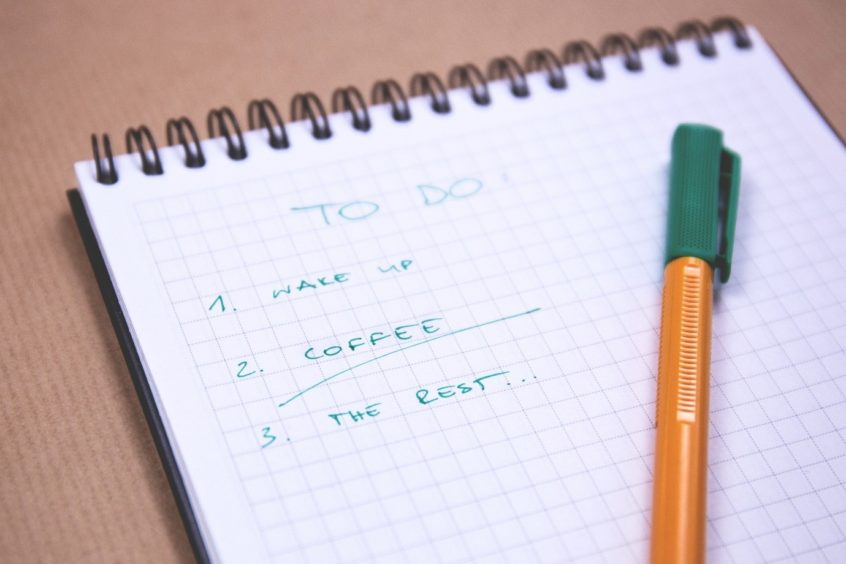Burnout – that feeling of reaching your limit; utter exhaustion – is not something just reserved for overzealous achievers and workaholics.
Burnout affects an alarming number of people caught up in the prolonged stresses and demands of everyday working life. The feeling of burnout often comes from trying to do too much for too long and can have a serious detrimental effect on your mental and physical health.
Exhaustion, feeling incapable, behavioural changes, and overwhelming feelings towards your job all indicate burnout. If this sounds familiar, and you find yourself drained and dreading work each morning, then read on for advice on how to deal with burnout.
Life As We Know It
We spend a considerable chunk of our lives working and it’s easy for our personal and work lives to become lumped together. We answer emails at the dinner table and finish reports late at night. Because of this, you might find yourself experiencing both physical and emotional responses to burnout, ranging from stomach problems and headaches to feelings of overwhelming tiredness, sadness, and lack of motivation.
The exhausting feelings of burnout can quickly become overwhelming and often paralysing, so we’ve suggested some tips below to help alleviate those stresses.
A wellbeing routine
A healthy diet, an exercise routine and plenty of proper sleep can help combat some of the draining effects caused by burnout. Proper sleep is one of the best things we can arm ourselves with in the fight for wellness; a dedicated space in which you can unwind and sleep soundly will help get you into a routine.
Banish any work-related items from your sleeping space – no laptops or work phones, no TV, tablet or any blue light at least an hour before bed. Perhaps take a bath or try yoga to relax your mind and body in the hours before you want to fall asleep, and try your best to give yourself at least eight hours.

A mattress that will give you the correct support for your body is crucial to resting your muscles and allowing them to recover, as well as giving your mind a peaceful, undisturbed rest.
Try investing in comforting bedding, like weighted blankets and soft pillows, to help ensure you feel comfortable and can sleep soundly. Make a big deal of bedtime! This is your time to indulge in comfort and peace, so treat it as a special time in the day that you deserve.
A healthy, well-balanced diet and plenty of water will help your immune system battle illnesses you might be more susceptible to. Try to ditch the caffeine as best you can and keep yourself fuelled with satisfying and slow-releasing foods and snacks.
Gentle exercise can help structure your time and help you unwind while releasing some built up tension and stress, but remember to find exercise you enjoy! Try not to view it as another burden on the list of things to do.
Dance along to your favourite song or take a stroll in your favourite spot; dance with your partner or do an obstacle course with the kids. Whatever you do, remember that getting up and moving will almost always lift your spirits and help you achieve some much-needed mental clarity.
Switch off and find something you love
Being a part of the world right now isn’t easy. From the pandemic to important civil rights movements and the effects of global warming, we watch these events unfold daily, and it can spark feelings of hopelessness. But you can’t fix everything.
If you’re experiencing burnout and are already feeling exhausted and unmotivated, then being kind to yourself is the most important step in managing your physical and emotional stress. Limit your exposure to the news and alarmist headlines and take a break from aimless scrolling through social media.

Instead, rediscover your passions. Whether it’s reading, drawing or simply watching your favourite series on Netflix in comfy clothes, it’s important to create boundaries between the workplace and your personal life; be sure to remember to do the things that make you happy.
If you’re suffering from burnout, try to consciously end your working day and switch off at a certain time, separating the two as best you can.
Jot down the priorities and tasks you’d like to get done at home into manageable chunks and then take a walk out in the fresh air to cleanse yourself of the stresses of the day.
Give yourself credit
There are varying factors that are connected to your job and workplace that reportedly can lead to burnout. These can be things such as unmanageable workloads, confusion over your role and responsibilities, and also a lack of support from your manager.
This can trigger a lot of internal pressure, trapping us in a toxic cycle of feeling inadequate.
Your achievements can easily get lost when you’re berating yourself or feeling low and vulnerable, but be proud of how far you’ve come and how you’re handling the situation.
All of these tips can help you to manage the results of burnout, but the root cause of your burnout must be addressed.
Whether that’s a discussion with your boss as to how you can be better supported, setting boundaries with your job, or even exploring other options that are a better fit for you, it’s important to understand when management of the situation needs to turn into finding a long-term solution.
